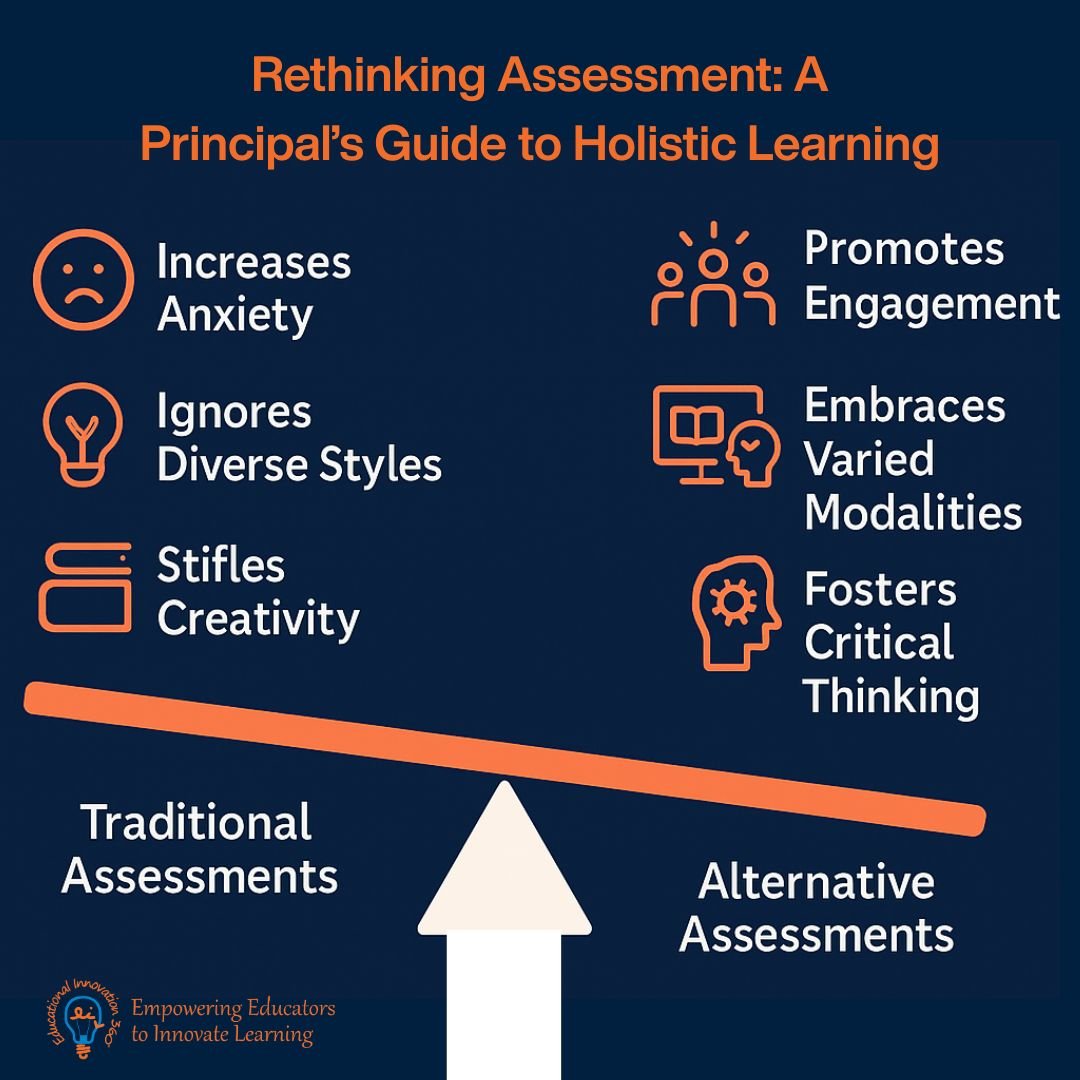From Compliance to Creativity: Transforming How We Measure Success
As K12 principals, you are at the forefront of shaping how learning is measured and experienced in your schools. In 2025, the call to rethink assessment is louder than ever. The challenge is clear: assessments must not only measure learning, they must empower it. With classrooms transformed by technology and student needs more diverse than ever, the way we assess can either unlock or limit student potential.
Why Traditional Assessments Fall Short
For decades, traditional assessments—standardized tests, multiple-choice exams, and rote memorization—have dominated K12 education. While these methods offer some insights into student achievement, research shows they often fail to capture the full spectrum of student learning and ability.
Key Limitations:
Ei360: Rethinking Assessment: A Principal’s Guide to Holistic Learning
Stifling Creativity and Critical Thinking: Traditional assessments prioritize recall over higher-order thinking. A 2018 study by Darling-Hammond et al. found that such tests rarely measure skills like problem-solving, creativity, or collaboration—skills essential for 21st-century success (Darling-Hammond et al., 2018).
Ignoring Diverse Learning Styles: Standardized tests are often biased toward certain learning modalities, disadvantaging students who demonstrate understanding in non-traditional ways (Abedi, 2010).
Increasing Anxiety and Disengagement: High-stakes testing environments can lead to stress and disengagement, particularly among younger learners (Segool et al., 2013).
Trending Forward: Authentic Assessment Practices
Forward-thinking schools are embracing authentic assessments—evaluations that mirror real-world challenges and require students to apply their knowledge in meaningful ways.
Examples of Authentic Assessment:
Project-Based Learning (PBL): Students work on complex, real-world problems and present their solutions to authentic audiences. Research shows PBL increases student engagement and deepens understanding (Holm, 2011).
Portfolios: A curated collection of student work over time provides a holistic view of growth, allowing for reflection and self-assessment (Barrett, 2007).
Student-Led Conferences: Students take ownership by reflecting on their progress and setting goals, fostering self-regulation and metacognition (Moss & Brookhart, 2019).
These approaches not only assess academic mastery but also cultivate life skills such as communication, collaboration, and adaptability—skills that employers and universities consistently rank as critical for future success (World Economic Forum, 2020).
Action Steps for School Leaders
Ready to lead your school into the future of assessment? Here’s how you can start:
1. Audit Current Practices
Evaluate your school’s assessment landscape. Where are assessments supporting growth, and where might they be hindering it? Use data and teacher feedback to identify gaps.
2. Invest in Professional Learning
Provide ongoing professional development on designing and implementing authentic assessments. Teachers need time and support to shift their practices (Guskey, 2002).
3. Engage Stakeholders
Involve students, families, and community partners in conversations about what meaningful assessment looks like. Transparency builds trust and ensures alignment with community values.
4. Leverage Technology
Edtech tools can facilitate formative feedback, self-assessment, and personalized learning pathways. Platforms like Seesaw, Flipgrid, and Google Classroom offer robust options for authentic assessment and reflection (Trust & Maloy, 2022).
The Principal’s Role: Modeling a Growth Mindset
Your leadership is pivotal. Model a willingness to experiment with new assessment strategies, reflect on outcomes, and celebrate progress over perfection. When educators see principals embracing innovation, they feel empowered to do the same (Dweck, 2006).
Final Thoughts
Empowering students through innovative assessments isn’t just a trend—it’s a necessity for preparing them for an unpredictable future. By reimagining how we measure learning, we create environments where every student can thrive.
How is your school rethinking assessment this year? Share your story in the comments below!

